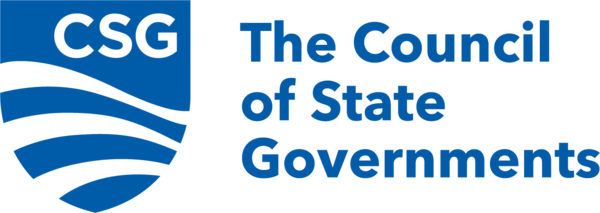By Kathryn Price

CSG, in partnership with the National Conference of State Legislatures and the National Governor’s Association, released the National Occupational Licensing Database to help state leaders better understand the national licensing landscape. This database contains information on the criteria required to attain a license in 34 occupations with 18 requirements being assessed. Some of the data points include initial and continuing education requirements, training, experience, exams and fees. Additionally, if a certain occupation is selected, a map of the states that require licensure will be produced (See top image below for map produced when searching the database for information on electricians). The database also allows for the user to make comparisons between states and occupations (See bottom image below for an excerpt of search results from the database when selecting to show information on cosmetologists).
The database gives the user the ability to see all the requirements across 50 states and shows the disparities between each state. These differences can create barriers for those moving across state lines as well as those attempting to gain initial licensure.
The licensing process is designed to ensure the safety of workers and the public by requiring a certain level of competency to practice a profession. However, some licenses can have excessive requirements and fees, which may be insurmountable for some. For example, home inspectors in New Jersey face an initial licensure fee of $850 along with a $500 fee every two years to renew. Whereas, those in Pennsylvania pay $225 initially and the license doesn’t expire. Four groups who are particularly vulnerable when it comes to gaining licensure are immigrants with work authorization, those with criminal records, military families, and unemployed and dislocated workers.
This database is the first step in a project aimed at understanding and reducing these barriers to licensure as well as learn best practices for licensing certain occupations. The three-year project, entitled Occupational Licensing: Assessing State Policy and Practice, is a joint effort by The Council of State Governments, the National Conference of State Legislatures, and the National Governors Association Center for Best Practices, and is funded by a grant from the U.S. Department of Labor.
The project also selected a consortium of 11 states that will meet with licensure experts to discuss each state’s current licensure practices, and develop and implement action plans that aim to remove excessive barriers created by some licenses. The states in the consortium are Arkansas, Colorado, Connecticut, Delaware, Illinois, Indiana, Kentucky, Maryland, Nevada, Utah, and Wisconsin.
The first consortium meeting was held in December of last year in Tucson, Arizona, with two more meetings slated for fall 2018 and summer 2019. In addition to these meetings, the project will produce continuing resources, namely a webinar series, blogs, newsletters and magazine article on occupational licensure policy.
This workforce product was funded by a grant awarded by the U.S. Department of Labor’s Employment and Training Administration. The product was created by the recipient and does not necessarily reflect the official position of the U.S. Department of Labor. The Department of Labor makes no guarantees, warranties, or assurances of any kind, express or implied, with respect to such information, including any information on linked sites and including, but not limited to, accuracy of the information or its completeness, timeliness, usefulness, adequacy, continued availability, or ownership. This product is copyrighted by The Council of State Governments.